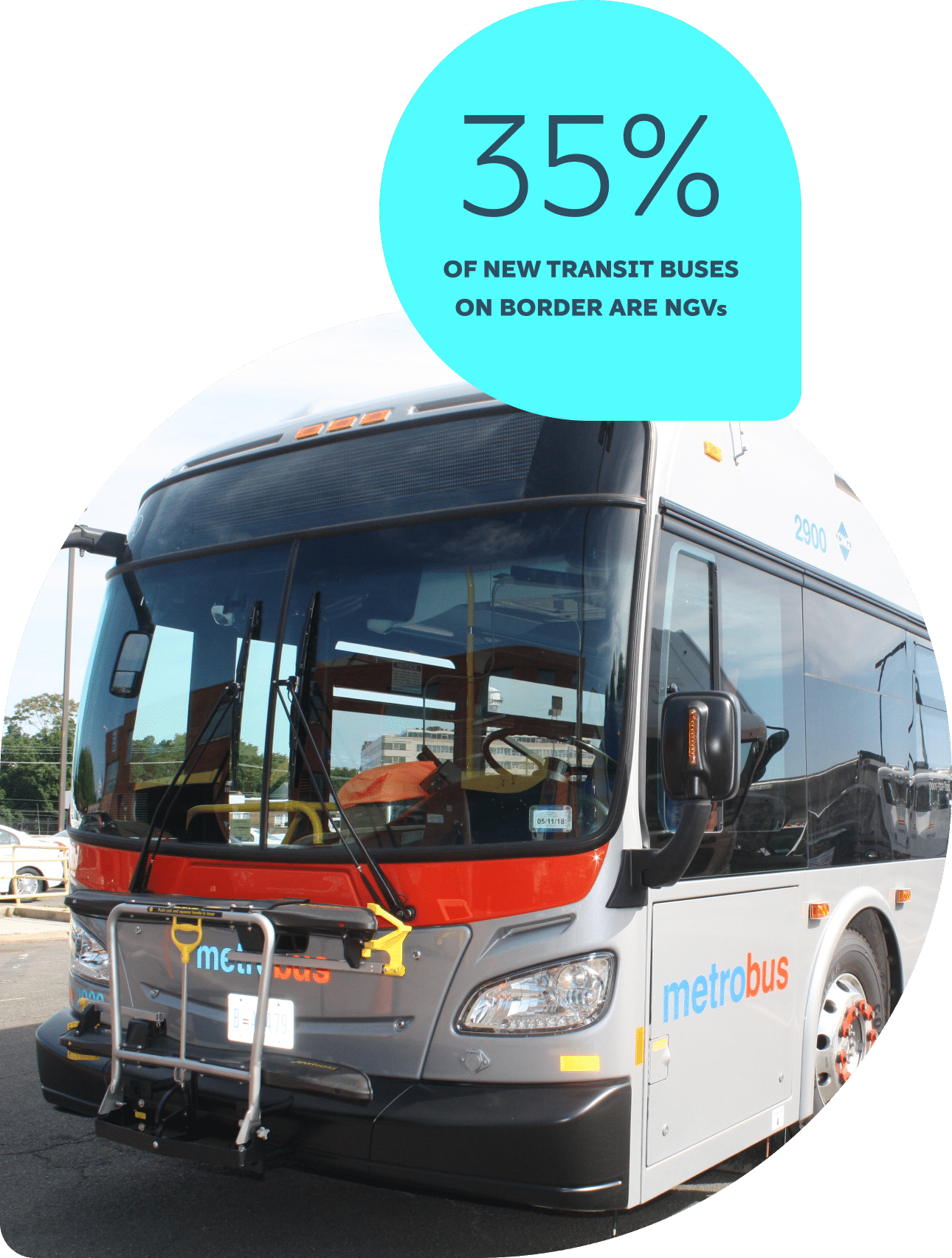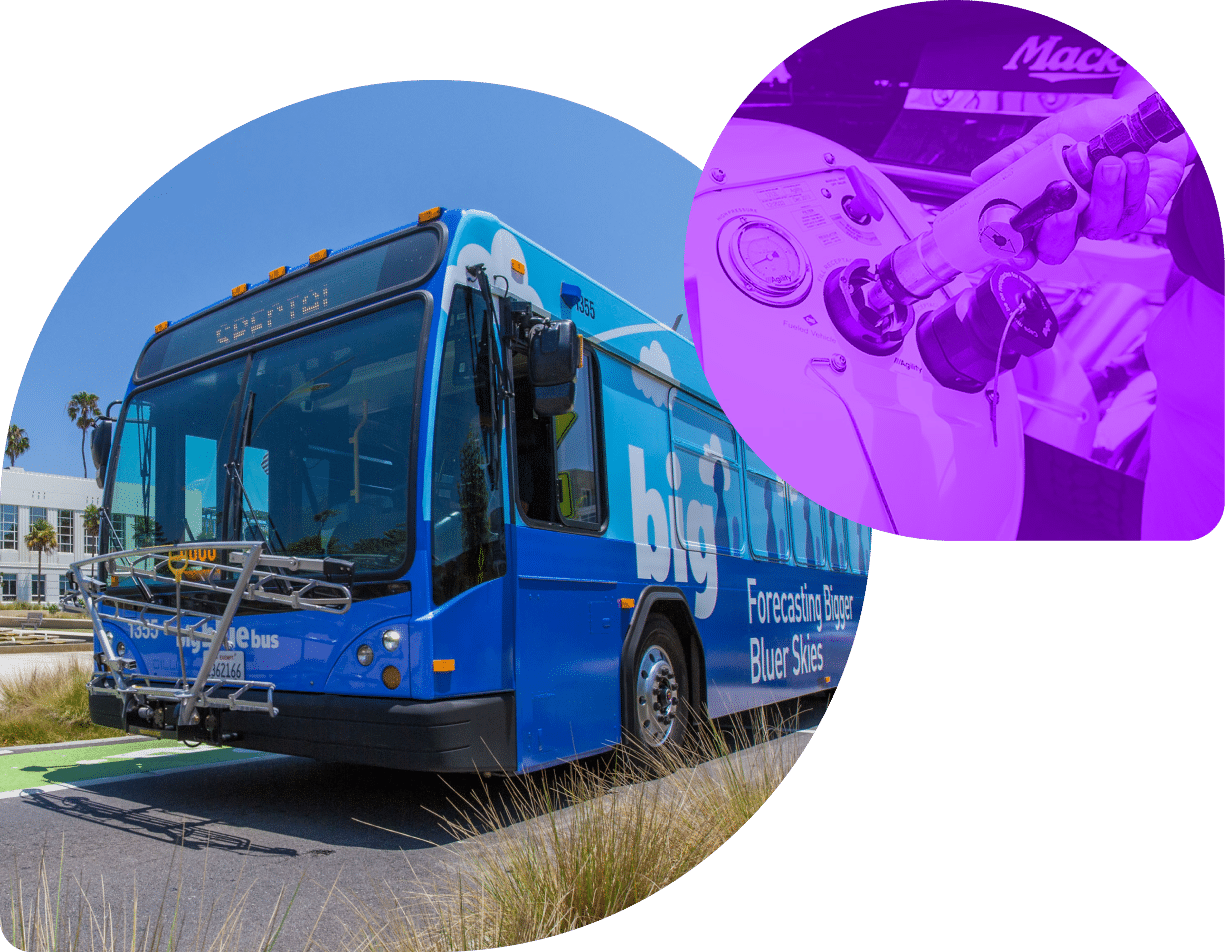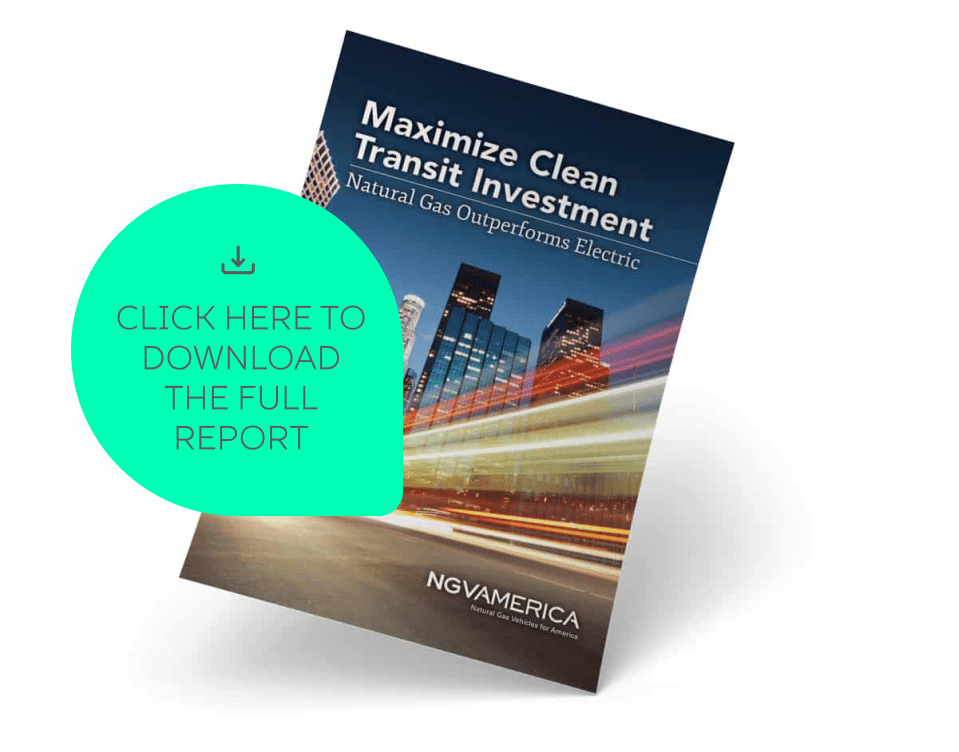NEW STUDY
Comprehensive Study Reveals Natural Gas Buses Outperform Electric
An analysis released today – Maximize Clean Transit Investment: Natural Gas Outperforms Electric – shows alternative fuel natural gas transit buses outperform their electric counterparts on virtually every major assessment mark. Click below for the full press release.
NGVAmerica Transit Study Overview Webinar
14,000 natural gas buses on the road
Transit agencies across the country are transitioning to natural gas for its environmental and economic advantages over diesel and other alternative fueled buses. Today, over 14,000 natural gas buses operate across the country, and about 35 percent of new transit buses on order are powered by natural gas.
The economic case against electric
While diesel-electric hybrid-drive propulsion systems show promise in a number of medium and heavy-duty vehicle markets, it is becoming increasingly clear that the initial purchase price premium and the cost of battery replacement for this technology is not justified by the incremental improvement in fuel efficiency. Natural gas buses have a significant life-cycle cost advantage over diesel and diesel-hybrid powered buses.


Positive public perception
Riders appreciate reliable, low-cost service that comes from cost-effective gaseous fuel investments and the clean and quiet operation of natural gas buses. Transit agencies operating natural gas buses fueled by domestic RNG are likely achieving a carbon-negative, zero criteria pollutant emissions equivalent outcome today at less than half the cost of battery electric and with all the reliability and range of traditional diesel bus alternatives.

Building a natural gas station
If use of existing fueling infrastructure is not practical, convenient, or economical, it may be better to build a new CNG, LNG, or LCNG station. The design, capacity, and cost of a CNG, LNG or LCNG fueling station will vary based on:
- Number of vehicles to be fueled, total daily fuel requirements and maximum hourly flow rate.
- Whether time-fill, fast-fill or both capabilities are needed (most transit agencies other than the very smallest that may rely on cutaway shuttles capable of a complete time-fill overnight require fast-fill capability).
- The level of remote station equipment monitoring.
Need a natural gas station on your route?
If use of existing fueling infrastructure is not practical, convenient, or economical, it may be better to build a new CNG, LNG, or LCNG station. NGVA can connect you with member station builders across North America.
NGVA can connect you with member station builders across North America.
Find
BUY NGV
A wide array of Natural Gas Vehicle options are commercially available
Vehicles news

